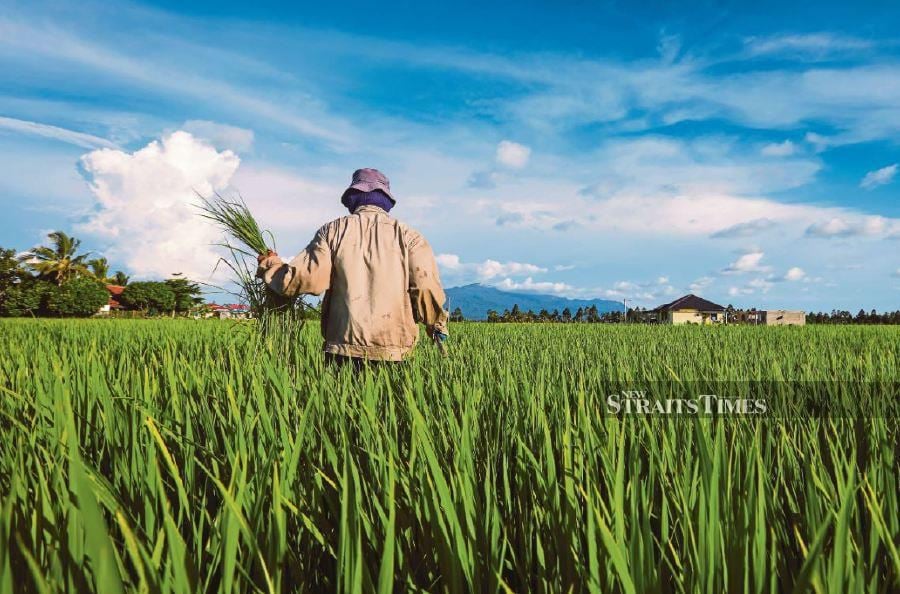
KUALA LUMPUR: Countries across the globe must strengthen regional cooperation and solidarity as they grapple with rampant, worsening food and energy shortages.
Institut Masa Depan Malaysia (Masa) chief executive officer Azril Mohd Amin said countries should step up agricultural production, instead of imposing restrictions on agricultural exports, during these trying times.
"Malaysia has emerged from the worst wave of the Covid-19 pandemic and continues to make strides in terms of economic recovery.
"But, we are now confronted by a tsunami of challenges stemming from the Russia-Ukraine war and the effective removal of Russia from the global economy.
"We are increasingly going to see developing countries adopting policies of 'food nationalism' and 'energy protectionism'; and every nation's self-sufficiency is going to become paramount.
"But at the same time, we must maintain and strengthen regional cooperation and solidarity, understanding that helping each other does not make us more vulnerable, but stronger; and self-sufficiency is not the same thing as isolation.
"We must be guided by the Prophetic tradition that says, 'He is not a believer whose stomach is filled while his neighbour goes hungry'.
"What this requires in practical terms is not more agricultural export restrictions, but rather, greater agricultural production, perhaps re-invigorating subsistence farming alongside farming for exportation," he said.
Azril proposed this during the "Role of Youths in Civilisation and Sustainability" forum organised by Universiti Malaya's Centre for Civilisational Dialogue (UMCCD), here, today.
The Russia-Ukraine war, that erupted on Feb 24, has led to acute food supply shortage, and several countries have instated export restrictions on crucial food items.
India, for example, banned wheat exports in mid-May, and a few days later, it capped sugar exports to 10 million tonnes for the current marketing year to September.
Azril said, Malaysia must consider and prepare for the repercussions of events like the Russia-Ukraine on the country and the region.
"Events like the war in Ukraine, and more specifically the subsequent economic isolation of Russia – which is creating a global economic disaster of immeasurable proportions – must be understood in the context of this historic transition of world power dynamics.
"From the beginning, Malaysia has been a nation deeply protective of our sovereignty and independence, and we have always resisted polarization in international relations.
"As a member of the Non-Aligned Movement or NAM, we have always maintained a wisely self-interested impartiality in world affairs, which is necessary to preserve our autonomy and to safeguard our national interests.
"This ethos of non-alignment, of independence, may make us the target of pressure and criticism from those who wish to make us take sides, but it also makes us invulnerable to bullying," he said.
The current crisis, Azril said, has also pointed out the need for countries to replace globalisation with greater economic regionalisation.
"At the global level, Malaysia, and the Asean region generally, possess unique demographic advantages – the populations of nearly the entire developed world are aging faster than we are.
"Our importance as a consumer group, a labour and talent pool, a source of natural wealth and human potential, is making our nation and our region the geopolitical and economic centre of the world.
"We must be prepared to make bold changes in charting the way forward to promote an inclusive sustainability agenda in line with the 2030 Agenda of Sustainable Development Goals (SDG), and in the context of Malaysia, the Wawasan Kemakmuran Bersama or the Shared Prosperity Vision 2030.
"Adopting a whole of nation approach enables us to synergise our efforts towards advocating and accelerating SDGs in the local context, particularly in areas of sustainable financing, climate action and technology.
"For example, in the sector of additive manufacturing and 3D printing, Malaysia has recognised phenomenal economic potential, while adhering to the three fundamental Rs of sustainability – reduce, re-use, and recycle.
"Localising SDGs obliges us to engage discussions at the grassroots levels by encouraging participation of the youth in the creative implementation of the SDGs," he added.